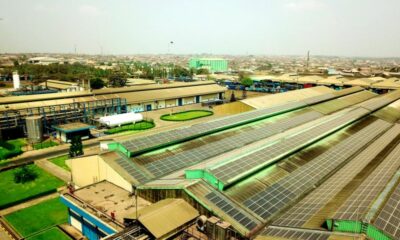Beverages
Nigerian Breweries Reports 39.1% Rise in Profit to ₦7.7Bn in Q1 2020

Nigerian Breweries Plc, Nigeria’s largest brewer and manufacturer of alcoholic and non-alcoholic drinks, has recently announced a 38.59% year-on-year growth in profit to N7.66 billion for the first quarter of 2021, up from the N5.53 billion profit it reported in the corresponding quarter of 2020.
The Board of Directors of Nigerian Breweries Plc made this known in its Unaudited and Provisional Results for the First Quarter (three months) ended 31st March 2021.
Key financial metrics
- Net revenue for the period jumped to N105.6 billion, 27 per cent stronger than the figure posted in the first quarter of last year, Nigeria’s biggest beer-maker stated in its unaudited earnings report.
- Profit before tax rose to N11.5 billion from N8.3 billion a year earlier.
- Post-tax profit climbed to N7.7 billion, 39.1 per cent higher than N5.5 billion recorded in the same period of 2020.
- Total assets contracted by 0.10 per cent, largely resulting from a tumble in cash and cash equivalents from N30.4 billion to N18.4 billion.
- Earnings per share (basic and diluted) stood at N0.96, compared to the N0.69 of the same period of 2020.
“The impact of Coronavirus (Covid-19) pandemic on the economy and by implication, the Company continued during the period under review,” the brewer said in a statement signed by Uaboi Agbebaku, the company secretary.
“Our priority remained to protect the health, safety and welfare of employees, customers and partners. We regularly monitored and evaluated the Company’s financial position and performance in the light of the pandemic; our Balance Sheet remained strong.”
Despite these impressive performances, the company’s profit was pressured by a 36.56% increase in the cost of sales at the back of the persistent increase in input costs. The company’s management however revealed that the persistent increase in input costs can be linked to the COVID-19 pandemic, the increase in VAT, currency devaluation and FX scarcity.


















